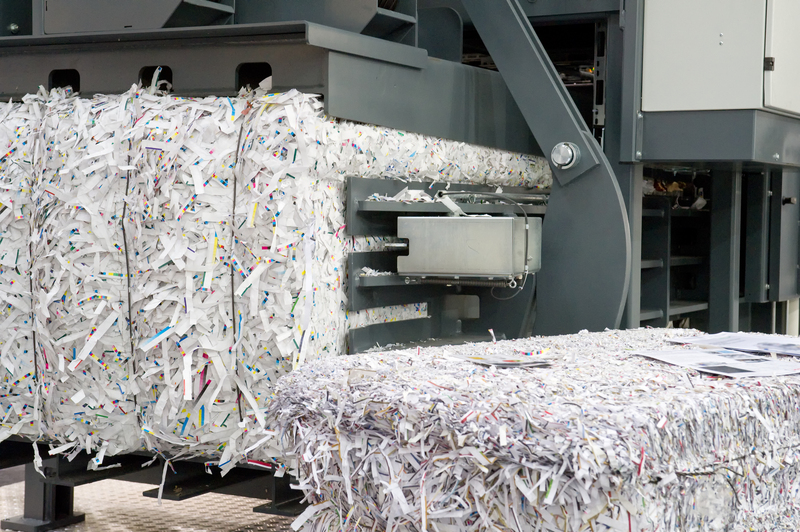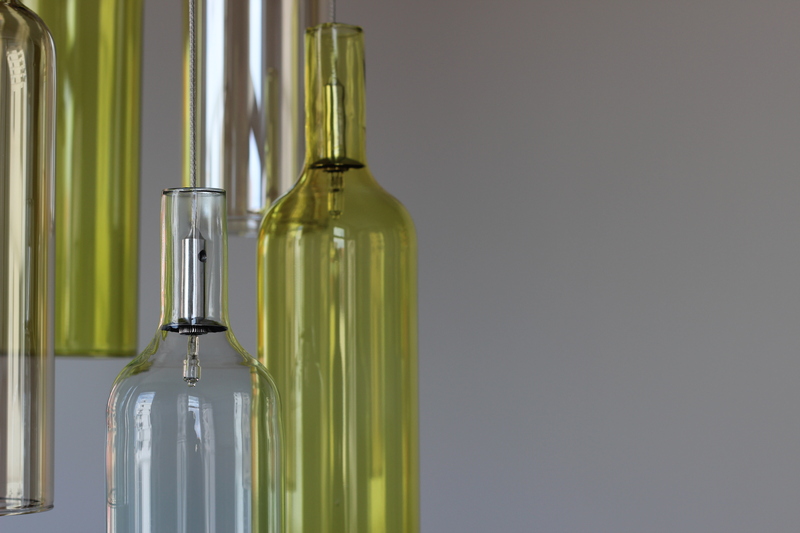Responsible Methods for Pots and Pans Disposal: A Complete Guide
Upgrading your kitchen tools is exciting, but it also presents a dilemma: what do you do with your old pots, pans, and cookware? Simply tossing them into the trash is not only wasteful - it's also harmful for the environment. Responsible pots and pans disposal is crucial for sustainable living. In this comprehensive article, you'll discover eco-friendly, creative, and practical methods to get rid of old cookware the right way.

Why Responsible Pots and Pans Disposal Matters
Many pots and pans are made from metals such as aluminum, stainless steel, or copper, while others may have non-stick coatings or plastic handles. Disposing of these items improperly can:
- Contribute to landfill waste, which takes centuries to decompose.
- Release toxic substances into the environment.
- Waste valuable materials that could be recycled or reused.
By learning eco-friendly ways to dispose of your pots and pans, you can reduce your environmental footprint and possibly help others in need.
Assessing the Condition of Your Cookware
Before choosing the best disposal method, inspect each item to determine if it's still usable, slightly damaged, or completely worn out. Ask these questions:
- Does it have major dents, cracks, or warped surfaces?
- Is the non-stick coating peeling or scratched?
- Are the handles secure and intact?
- Is it heavily stained or rusted?
You have several cookware disposal options depending on its condition:
- Reusable or functional pots and pans: Consider donation, resale, or gifting.
- Damaged or unusable cookware: Try recycling, upcycling, or appropriate waste streams.
Donation - Give Your Cookware a Second Life
If your pots and pans are still in good, usable condition, donation is an excellent responsible disposal method. Someone else may benefit greatly from them!
Where Can You Donate Old Cookware?
- Local charities (Goodwill, Salvation Army)
- Homeless shelters and food banks
- Community centers or soup kitchens
- Thrift shops and second-hand stores
- Online community platforms (Freecycle, Facebook Marketplace, Craigslist)
Tip: Clean and sanitize items thoroughly before donation. Check if the organization accepts cookware and inquire about their guidelines.
Reselling or Gifting Used Pots and Pans
If your cookware set is high-quality or only lightly used, you can resell it online or give it away to friends, family, or neighbors starting out in their own kitchens.
Platforms for Resale or Giveaway
- eBay, Mercari, OfferUp, Facebook Marketplace
- Community bulletin boards or garage sales
- Specialty kitchenware consignment stores
Reselling gives your pots and pans a new home and can offset the cost of your upgrades.
Recycling Metal Pots and Pans
Some cookware is too damaged to be reused. Fortunately, metal pots and pans disposal through recycling is a green alternative.
Are Pots and Pans Recyclable?
Most metal cookware (stainless steel, aluminum, cast iron) is recyclable. However, recycling facilities often have specific guidelines:
- Plastic, rubber, or wooden handles may need to be removed.
- Non-stick coatings (like Teflon) can complicate recycling; check local requirements.
- Contact your municipal recycling center for their policies.
- Some centers accept cookware only at special events or recycling drop-off locations.
Never place cookware straight into your curbside bin unless explicitly allowed!
Scrap Metal Yards
If your local recycling program won't accept pans, scrap metal yards generally do. They'll often pay a small fee for valuable metals. Make sure the items are free of food residue and as separated by metal type as possible.
How to Prepare Cookware for Recycling
- Scrub away any food, grease, or debris.
- Remove non-metal parts (handles, lids, knobs) with a screwdriver or pliers if needed.
- Sort by material if possible (aluminum, stainless steel, copper, etc.).
- Contact the facility to confirm their requirements before dropping off your items.
Responsible Nonstick Cookware Disposal
Nonstick pans (Teflon or PTFE-coated) aren't always as easy to recycle due to their chemical coatings. Here are responsible options:
- Check for manufacturer take-back programs - Some brands will recycle their own products.
- Special waste or hazardous collection days may accept nonstick pans.
- Scrap metal yards sometimes accept them, but often the coating must be removed, which is difficult.
- Reuse or upcycle if recycling is not possible.
Never incinerate or break up Teflon pans at home, as fumes can be highly toxic.
Upcycling and Reusing Old Cookware
Before junking old pots and pans, consider creative ways to repurpose or upcycle them:
- Planters or herb gardens: With a few drainage holes, an old pan makes a quirky planter.
- Craft projects: Pans can become clocks, birdbaths, or wall art with some creativity.
- Storage containers: An old stock pot is perfect for holding utensils, garden tools, or art supplies.
- Candle holders or mini fire pits: Safely transform metal pots for outdoor ambiance.
- Kids' play kitchens: Old, clean pans are great for playtime cooking fun.
Tip: Search online for upcycling project tutorials, or join local crafting groups for more inspiration.
Manufacturer Takeback and Mail-Back Programs
A growing number of cookware brands recognize the importance of sustainable pots and pans disposal. Certain companies now offer mail-back or take-back recycling programs for their products. Examples include:
- Calphalon ReNew recycling program
- GreenPan Circular Recycling Program
- TerraCycle Kitchen Equipment Zero Waste Box (fee applies)
Visit each brand's website for instructions on shipping your old cookware for responsible recycling.
Community Metal Collection Events
Many towns and cities organize household hazardous waste or scrap metal collection days. This is a great opportunity for local, responsible disposal of bulky or tricky items like cookware. Check:
- City or county websites
- Upcoming recycling events posted online or in community centers
- Local environmental groups or Clean-Up Days
Responsible Trash Disposal: The Last Resort
If none of the above options work due to the condition or material of your pots and pans, disposal in the trash may be unavoidable. However, keep this as an absolute last resort. Preventative choices, like purchasing higher-quality, long-lasting cookware, can minimize waste over time.
Tips for Choosing Sustainable Cookware in the Future
The best way to reduce the need for cookware disposal is by choosing durable, repairable, and recyclable options from the start:
- Avoid non-recyclable nonstick coatings as much as possible.
- Select uncoated stainless steel, cast iron, copper, or hard-anodized aluminum.
- Buy high-quality brands known for longevity and offering replacement parts.
- Look for products with manufacturer repair or recycling programs.

Frequently Asked Questions: Responsible Pots and Pans Disposal
Can you put old pots and pans in the recycling bin?
No, unless your recycling center's guidelines specifically say so. Most curbside recycling does not accept cookware; check with local authorities.
Where can I recycle pots and pans near me?
Find your nearest scrap metal yard or municipal recycling drop-off center by searching online or contacting your city's waste management department
Are Teflon pans recyclable?
In most cases, nonstick-coated pans are not accepted for recycling in standard facilities. However, some manufacturer programs or specialized recycling services accept them.
What do I do with rusty cookware?
If it's only surface rust, try restoring cast iron. Severely corroded cookware can be recycled as scrap metal if it's cleaned and non-metal parts are removed.
Can you donate used pots and pans?
Yes - if they're clean, safe, and functional, many charities and shelters will happily accept them.
Conclusion: Make the Right Choice for Pots and Pans Disposal
Every pot or pan disposed of responsibly helps reduce landfill waste, save resources, and support your community. Whether you donate, recycle, repurpose, or participate in take-back programs, there's a sustainable solution for every type of cookware. Make eco-friendly choices now, and your kitchen (and the planet) will thank you!
- Assessment: Inspect, clean, and determine the best route for each item.
- Donation/Gifting: Extend their life and help someone else.
- Recycling/Scrap: Turn old metal into something new.
- Upcycling: Get creative and minimize waste.
Remember, responsible disposal of pots and pans isn't just about getting rid of clutter--it's about being a conscious consumer and steward of the environment.
Start your responsible cookware disposal journey today and inspire others to do the same!